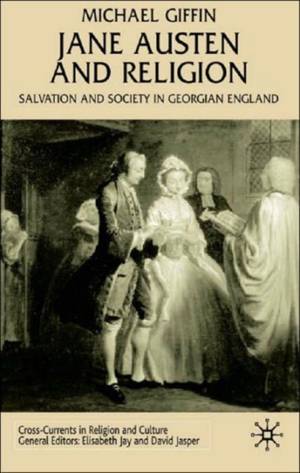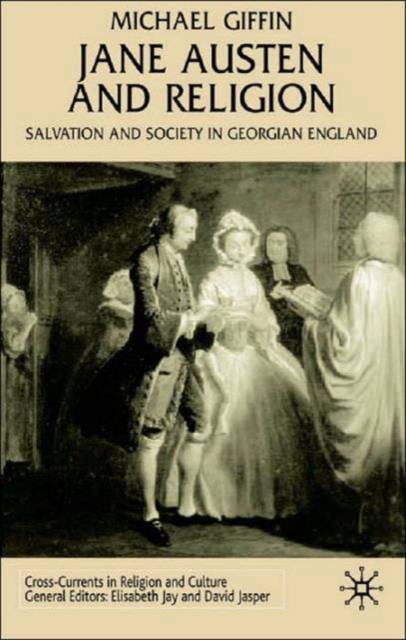
- Afhalen na 1 uur in een winkel met voorraad
- Gratis thuislevering in België vanaf € 30
- Ruim aanbod met 7 miljoen producten
- Afhalen na 1 uur in een winkel met voorraad
- Gratis thuislevering in België vanaf € 30
- Ruim aanbod met 7 miljoen producten
Zoeken
Omschrijving
Jane Austen is often thought of as a secular author, because religion seems absent from her novels, because she satirises her clerical characters, and because history and literacy criticism - and the literary sensibility of the twenty-first century reader - is overwhelmingly secular. Michael Giffin offers a reading of Austen's published novels against the background of a 'long eighteenth century' that stretched from the Restoration to the end of the Georgian period. He demonstrates that Austen is a neoclassical author of the Enlightenment who writes through the twin prisms of British Empiricism and Georgian Anglicanism. His focus is on how Austen's novels mirror a belief in natural law and natural order; and how they reflect John Locke's theory of knowledge through reason, revelation and reflection on experience. His reading suggests there is a thread of neoclassical philosophy and theology running through and between each of Austen's novels, which is best understood in its cultural context.
Specificaties
Betrokkenen
- Auteur(s):
- Uitgeverij:
Inhoud
- Aantal bladzijden:
- 222
- Taal:
- Engels
- Reeks:
Eigenschappen
- Productcode (EAN):
- 9780333948088
- Verschijningsdatum:
- 21/06/2002
- Uitvoering:
- Hardcover
- Formaat:
- Genaaid
- Afmetingen:
- 160 mm x 216 mm
- Gewicht:
- 458 g

Alleen bij Standaard Boekhandel
+ 335 punten op je klantenkaart van Standaard Boekhandel
Beoordelingen
We publiceren alleen reviews die voldoen aan de voorwaarden voor reviews. Bekijk onze voorwaarden voor reviews.











